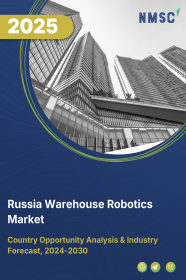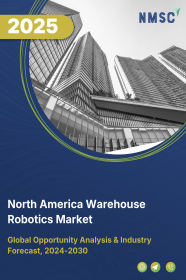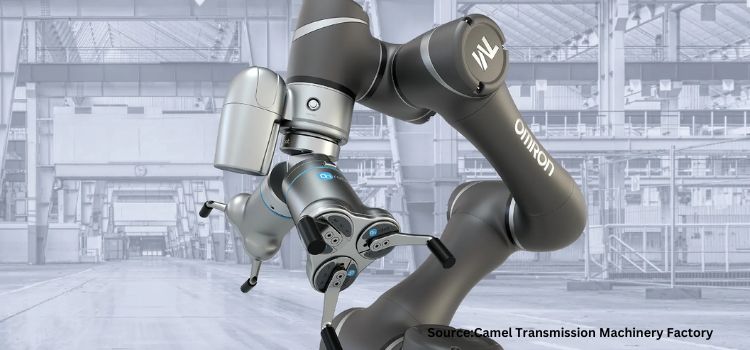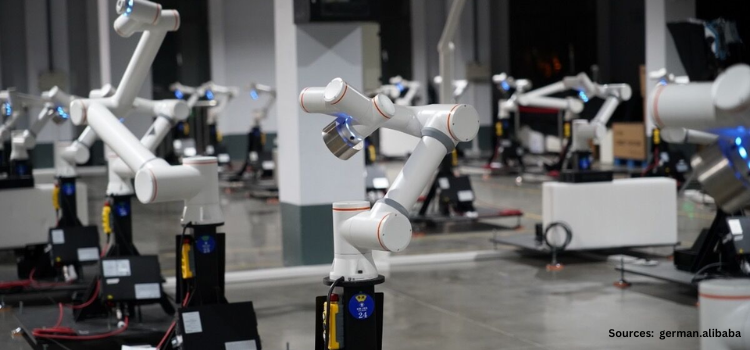
India Warehouse Robotics Market by Type (Automated Guided Vehicles (AGVs), Autonomous Mobile Robots (AMRs), Articulated Robots, & Others), by Offering (Hardware, Software, and Services), by Payload Capacity (Less than 100 KG, 101-200 KG, 201-500 KG, and Others), by Application (Palletizing and Depalletizing, Sorting and Packaging, Picking and Placing, Transportation), and by End-User (E-commerce, Automotive, Food & Beverages, and Others) – Opportunity Analysis and Industry Forecast, 2025–2030
Industry: Semiconductor & Electronics | Publish Date: 31-Mar-2025 | No of Pages: 143 | No. of Tables: 108 | No. of Figures: 57 | Format: PDF | Report Code : SE3149
India Warehouse Robotics Market Overview
The India Warehouse Robotics Market size was valued at USD 342.3 million in 2024, and is predicted to reach USD 1241.2 million by 2030, at a CAGR of 22.8% from 2025 to 2030.In terms of volume, the market size was 22.18 thousand units in 2024 and is projected to reach 86.2 thousand units by 2030, with a CAGR of 24.1% from 2025 to 2030
India's growth in the adoption of industrial robots across various industries, including logistics and warehousing, driven by the requirement for increased accuracy, precision, and capacity in operations. And also, there is massive rise of e-commerce in India, guided by giants such as Flipkart, Amazon, and Reliance Retail, seriously increased the demand for more quicker and warehouse operations with higher efficiency.
Nevertheless, the requirement of high initial investment needed for robotic systems is the major reasons for restraining the growth and the widespread movement for robotic material handling, reducing the overall growth of the warehouse robotics market in India.
Need for More Efficiency Drives the India Warehouse Robotics Market Demand
India is on a major rise with the application of industrial robots among various sectors including logistics and warehousing, driven by the need for increased accuracy, precision, and scalability in operations.
Moreover, businesses demand for quicker order fulfilment and smoother inventory management and so automated warehouse systems has shown as a vital solution to streamline workflows and reduce dependency on manual workforce. According to the International Federation of Robotics, industrial robot sales reached 8,510 units in 2023, marking a 59% increase from 5,353 units in 2022.
Rise in E-Commerce Drives the India Warehouse Robotics Market Growth
Growth of e-commerce propels the demand for quicker and efficient operations. As consumers continue to demand for quicker deliveries and a fast-moving shopping experience around various channels, businesses are under pressure to stabilize their supply chain processes.
According to the latest publications from India Brand Equity Foundation states, the Indian e-commerce sector is expected to gain almost USD 325 billion by 2030, experiencing significant growth. In India it is expected to grow, changing logistics and ensuring that companies can stay competitive in the fast-evolving marketplace.
Massive Initial Investment Restraints the India Warehouse Robotics Market Expansion
High initial investment costs associated with adopting advanced robotic systems restrains the growth of the market. These systems need healthy amount of outlay for both the purchase of hardware and the integration of complicated automation technologies. For many businesses, especially small and medium-sized business, the financial load of these upfront costs can be restrictive.
SMEs, that play an important role in the economy, often operate with average budgets and find it challenging to allocate resources for such massive investments. Thus, the hinderance to invest in automation disrupts the widespread adoption of robotic solutions in warehouses, therefore restraining the overall growth of the market in India.
Introduction of Artificial Intelligence Creates Future Option for the Market
The addition of artificial intelligence in supply chain robotics is expected to play a major role allowing growth opportunity for the India warehouse robotics market trends in the future. AI induced solutions improves decision making, optimize inventory management and improve the accuracy and speed of operations that helps warehouses to become more accurate and adaptable.
As such in January 2025, Nvidia disclosed new AI development tools aimed at improving the potential of autonomous robots and vehicles. These models are mad to create synthetic data and simulate physical interactions, allowing developers to create designed templates for testing their AI systems before real-world. These progresses will focus on the transformative potential of AI in warehouse robotics, paving the way for smarter, more lively and highly efficient warehouse operations that meet the future demands of modern supply chains.
Competitive Landscape
The promising players operating in the India warehouse robotics industry includes ABB Ltd., Omron Corporation, KUKA AG, Fanuc Corporation, JBT Corporation, GreyOrange, Bastian Solutions LLC, Zebra Technologies, Dematic, Honeywell International Inc, Vanderlande Industries B.V., Daifuku Co., Ltd., Murata Machinery, Ltd., YASKAWA ELECTRIC CORPORATION and others.
India Warehouse Robotics Market Key Segments
By Type
-
AGVs
-
AMRs
-
Articulated Robots
-
Others
By Offering
-
Hardware
-
Software
-
Services
By Payload capacity
-
Less than 100 kg
-
101-200 KG
-
201-500 KG
-
Others
By Application
-
Palletizing and Depalletizing
-
Sorting and Packaging
-
Picking and Placing
-
Transportation
By End User
-
E-commerce
-
Automotive
-
Food & Beverages
-
Others
Key Players
-
ABB Ltd.
-
Omron Corporation
-
KUKA AG
-
Fanuc Corporation
-
JBT Corporation
-
GreyOrange
-
Bastian Solutions, LLC
-
Zebra Technologies
-
Dematic
-
Honeywell International Inc
-
Vanderlande Industries B.V.
-
Daifuku Co., Ltd.
-
Murata Machinery, Ltd.
-
YASKAWA ELECTRIC CORPORATION
REPORT SCOPE AND SEGMENTATION:
|
Parameters |
Details |
|
Market Size Value in 2024 |
USD 342.3 million |
|
Revenue Forecast in 2030 |
USD 1241.2 million |
|
Value Growth Rate |
CAGR of 22.8% from 2025 to 2030 |
|
Market Volume in 2024 |
22.18 thousand units |
|
Unit Forecast in 2030 |
86.2 thousand units |
|
Volume Growth Rate |
CAGR of 24.1% from 2025 to 2030 |
|
Analysis Period |
2024–2030 |
|
Base Year Considered |
2024 |
|
Forecast Period |
2025–2030 |
|
Market Size Estimation |
Million (USD) |
|
Market Volume Estimation |
Thousand units |
|
Growth Factors |
|
|
Companies Profiled |
14 |
|
Countries Covered |
10 |
|
Customization Scope |
Free customization (equivalent up to 80 working hours of analysts) after purchase. Addition or alteration to country, regional, and segment scope. |
|
Pricing and Purchase Options |
Avail customized purchase options to meet your exact research needs. |

















 Speak to Our Analyst
Speak to Our Analyst





















